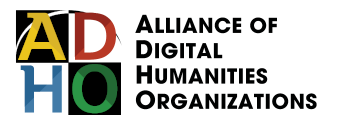Español | Italiano | Türkçe | 中文
ADHO’s Intersectional Inclusion Task Force (initially the Anti-racism Task Force) emerges from a direct and pressing need to address systemic inequalities within ADHO and the broader DH community connected to its activities,* including but not limited to race, class, gender, ability, caste, tribe, sexuality, nationality, geographical location, religion, health, language, or other social categories, which are often exacerbated by an unrestrained techno-positivism in current global contexts.
This task force extends and amplifies the conversations initiated by the statement on Black Lives Matter, Structural Racism, and Establishment Violence, and seeks to acknowledge, listen, and learn from people, organizations, and communities that have been marginalized. The members of this task force represent Digital Humanities from diverse sites and communities of practice. The contrasting yet complementary lived experiences and positionalities of our Task Force members motivate us to champion a self-reflexive and critical awareness toward EDI (equity, diversity, and inclusion), anti-discrimination, and social justice work within and beyond digitally mediated spaces.
The goals of this Intersectional Inclusion Task Force include:
- advocacy and action toward developing active structures of resistance against white/racial privilege, cis-heterosexism, sexism, casteism, classism, ableism, neocolonialism, xenophobia, linguistic or religious imposition and discrimination, and other oppressions in DH and related fields;
- recognizing how DH practice, pedagogy, and outreach is located within inherently asymmetric power relations and offering suggestions for infrastructural transformations that allow for the development of a more inclusive global DH community;
- collaborating with partners, peers, and colleagues from our constituent organizations and developing new relationships with current and aspiring DH stakeholders from majority worlds to build a decolonized praxis of DH beyond normative structural, institutional, technical, and linguistic paradigms;
- in the above points and in all aspects of our work and advocacy, we seek to promote intersectional equity, diversity, and inclusion in collaboration with the DH community.
Learn more about the Intersectional Inclusion Task Force.
We are seeking input from the global DH community. Questions, comments, and ideas can be sent to edi@adho.org.
_________
*ADHO’s primary activities are running the international DH conferences, sponsoring journals, and offering awards and bursaries.
